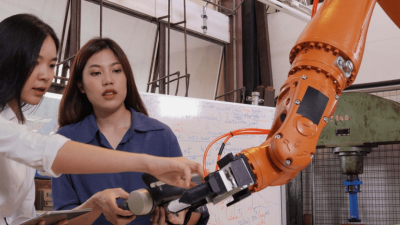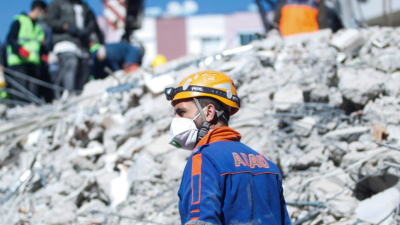
Doctoral Training Centre for next generation of Safe AI experts
Assuring Autonomy International Programme at the University of York has been awarded funding from UK Research and Innovation to train the next generation of AI experts.
This page is approximately a 4 minute read
This page was published on

On February 6th, 2023, a 7.8 magnitude earthquake struck Southern Turkey, affecting 14 million people as infrastructure and buildings failed under extreme conditions.
On February 6th 2023, a 7.8 Magnitude earthquake struck Southern Turkey, near the Syrian border. More than 50,000 people lost their lives and 14 million affected in the region, as infrastructure and buildings failed under extreme conditions.
Emily So has been working with researchers and scientists on the front line of the natural disaster. As an expert in architectural engineering and the Director of the Cambridge University Centre for Risk in the Built Environment (CURBE) – a group looking into the origins, consequences and mitigation of natural and manmade risk around the world – she’s been able to provide unique insight into how we can mitigate the devastating impact of such events.
“Urbanisation is leading us to build in more dangerous places, and to worse standards,” says Emily. “It’s these areas where the greatest impact from natural disasters are felt – and a reason as to why the majority of deaths related to natural disasters are mostly manmade.”
Emily started out as a graduate engineer with Lloyd’s Register Foundation partners Arup. “I was mainly working with private clients who had the money to build in tectonically active places like Turkey, Italy and Greece. These clients were very aware of the risks when expanding into these regions – to the point where they had built it into their business continuity plans – so they could recover quickly if the worst happened and their factories, industrial facilities, offices and so on were affected by a natural disaster.”
“However covid really illustrated how everything is connected. It became very evident to us all how pandemics and other disasters could affect supply chains (remember the shortage of toilet roll anyone?). It showed us how, without a more robust framework, these occurrences, which are becoming more frequent, can have a massive impact on businesses around the world. We need businesses, banks and multinationals to start thinking more holistically about resilience and disaster preparedness.”
Since the earthquake in Turkey, Emily and her team have been lending their expertise to those rebuilding from the disaster, and are hoping to share learnings with the international engineering community.
“Natural disasters like the one experienced in Turkey and Syria expose gaps and complexities in design and construction practices. From the engineering theory and process, down to the last brick being laid for a new house or factory, you’ve gone through at least 10-15 contractors, and the information has been passed on so many times that small changes can have a really significant impact.”
“An example of this in practice is concrete in Turkey. Research has shown that in many places where the impact of the earthquake was most significant, the concrete hadn’t been mixed properly and was made using the wrong materials. You need engineering knowledge to apply engineered materials like concrete and create safe, resilient built environments.”
Emily is calling on the international community to provide incentives for governments, communities and business to do better when it comes to building standards. “In developed countries, there may be resistance to adapting infrastructure to natural hazards due to associated costs and fear of backlash from local communities. In lesser developed nations, more immediate considerations such as food and education take clear priority.”
“The challenge for the architectural and infrastructure sectors is developing creative new ways to uphold audits, inspections and regulations that makes people accountable for their construction projects. We need to change our thinking from reactive to proactive.”
It is clear in situations like the one unfolding in Turkey and Syria that engineers are needed to ensure we ‘build back better’. “We are global, and we have a responsibility to our neighbours to make sure that in spite deteriorating political or economic situations, they have access to life saving research and expertise.”
“Turkey is currently going through the biggest rebuild project on Earth. While speed is necessary to retain business and tourism, a reckless approach to rebuild projects can often destroy the character of places. Community engagement, spatial planning and leadership is needed throughout the process. My team is working to make sure this way of thinking is considered in Turkey and Syria.”
“Living more sustainably, more comfortably and in a more beautiful environment – that’s what being an architect and an engineer is all about.”
To buy tickets to Emily’s talk, please visit the Hay Festival website. To learn more about Lloyd’s Register Foundation’s work in disaster preparedness and resilience, visit the World Risk Poll website.